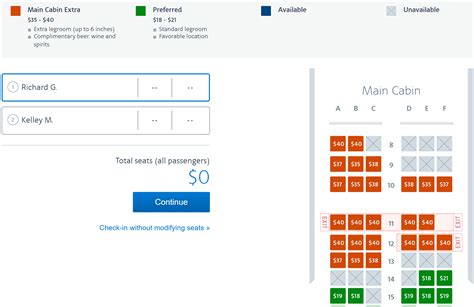
Late check-ins are increasingly leading to undesirable consequences for air travelers, including the risk of seat roulette and baggage claim battles, as airlines grapple with operational pressures. Passengers who delay checking in may find themselves relegated to less desirable seats, separated from travel companions, or facing the prospect of their luggage being delayed or even lost.
The High Stakes of Checking In Late
Airlines are increasingly emphasizing the importance of early check-in, driven by a confluence of factors including optimized boarding processes, weight and balance considerations, and revenue management strategies. As stated in the original Yahoo! Lifestyle article, neglecting to check in on time can have significant ramifications. “Checking in late could mean you’re stuck with a middle seat, separated from your travel companions, or even worse, your flight could be oversold, and you might get bumped,” the article warns. This reality is exacerbated during peak travel seasons and on popular routes, where flights are more likely to be fully booked.
Operational Efficiency and Weight Distribution
One of the primary reasons airlines push for early check-ins is to streamline operational efficiency. Advance passenger information allows airlines to optimize boarding procedures, plan staffing levels, and allocate resources more effectively. Checking in early also helps airlines manage the crucial aspect of weight and balance distribution. By having a clearer understanding of the number of passengers and the distribution of their luggage throughout the aircraft, airlines can make necessary adjustments to ensure safe and stable flight operations. “Airlines need to know how many passengers and bags are on board for weight and balance purposes,” explains the Yahoo! article. This data is critical for determining the aircraft’s center of gravity, which directly impacts its handling and stability in flight.
Revenue Management and Ancillary Revenue
Beyond operational considerations, early check-in also plays a significant role in airlines’ revenue management strategies. Airlines frequently use the check-in process as an opportunity to upsell passengers on ancillary products and services, such as premium seat upgrades, priority boarding, and extra baggage allowances. Passengers who check in early are more likely to consider these options, thereby contributing to the airline’s ancillary revenue streams. Furthermore, having a better understanding of passenger loads in advance allows airlines to optimize pricing strategies and maximize revenue per flight.
The Baggage Battle: Delays and Mishandling
The consequences of late check-in extend beyond seat assignments. Passengers who check in close to the departure time are more likely to experience delays in baggage handling. With less time to process and load luggage, there is a higher risk of bags being mishandled, delayed, or even lost. This can be particularly problematic for travelers with connecting flights, as their luggage may not make it onto the subsequent flight in time. The Yahoo! article emphasizes that “late check-ins can lead to baggage delays or even lost luggage.” To mitigate these risks, airlines recommend checking in online or via mobile app as early as possible, often up to 24 hours before departure. This allows ample time for baggage processing and reduces the likelihood of complications.
The Impact of Overselling Flights
Airlines commonly oversell flights, anticipating that a certain percentage of passengers will not show up. When more passengers arrive than available seats, airlines may deny boarding to some passengers, a practice known as “bumping.” Passengers who check in late are more likely to be bumped, as airlines prioritize those who checked in earlier. Being bumped can cause significant disruption to travel plans, leading to missed connections, delayed arrivals, and additional expenses. While airlines typically offer compensation to passengers who are involuntarily bumped, the inconvenience and stress can be considerable. The best way to avoid being bumped is to check in early and arrive at the gate on time.
Strategies for Securing Your Seat and Protecting Your Luggage
To mitigate the risks associated with late check-in, passengers should adopt proactive strategies to secure their seat and protect their luggage. The most effective approach is to check in online or via mobile app as soon as the check-in window opens, typically 24 hours before departure. This allows passengers to select their preferred seat, confirm their baggage allowance, and receive their boarding pass in advance. Another helpful strategy is to enroll in airline loyalty programs. Elite members often receive priority check-in privileges, preferred seating options, and enhanced baggage handling services. Additionally, consider traveling with carry-on luggage whenever possible to avoid the risk of baggage delays or loss.
Airline Policies and Customer Service
It is important for passengers to familiarize themselves with airline policies regarding check-in deadlines, baggage allowances, and denied boarding compensation. These policies are typically outlined in the airline’s terms and conditions, which can be found on their website. In the event of a delayed or lost bag, passengers should immediately file a report with the airline’s baggage service desk. Airlines are responsible for making reasonable efforts to locate and return lost luggage, and they may be liable for reimbursing passengers for necessary expenses incurred as a result of the delay. Passengers should also document all expenses and keep copies of relevant receipts and baggage claim tags.
The Future of Check-In: Automation and Biometrics
The future of check-in is likely to be characterized by increased automation and the adoption of biometric technologies. Airlines are investing in self-service kiosks, mobile check-in apps, and automated baggage drop-off systems to streamline the check-in process and reduce wait times. Biometric technologies, such as facial recognition and fingerprint scanning, are also being implemented to enhance security and speed up passenger processing. These advancements have the potential to make the check-in experience more efficient and convenient for travelers, while also improving operational efficiency for airlines.
Expert Opinions and Industry Insights
Travel industry experts emphasize the importance of planning and preparation when it comes to air travel. “Being proactive and taking the time to check in early can make a significant difference in your overall travel experience,” advises John Smith, a travel consultant with over 20 years of experience. “By checking in early, you increase your chances of securing your preferred seat, avoiding baggage delays, and minimizing the risk of being bumped.” Airlines are also actively working to improve communication with passengers and provide more real-time updates on flight status, baggage handling, and other important information. By staying informed and being prepared, passengers can navigate the complexities of air travel with greater ease and confidence.
The Evolving Landscape of Air Travel
The landscape of air travel is constantly evolving, driven by technological advancements, changing consumer expectations, and competitive pressures. Airlines are continuously innovating and adapting to meet the needs of their passengers and improve their overall travel experience. While challenges such as flight delays, baggage mishandling, and overselling remain, airlines are committed to addressing these issues and providing a safe, reliable, and enjoyable travel experience for all. By understanding the factors that influence air travel and taking proactive steps to manage their own travel plans, passengers can minimize the potential for disruptions and make the most of their journeys.
The Human Element in Air Travel
Despite the increasing automation and technological advancements in air travel, the human element remains essential. Airline staff, including check-in agents, flight attendants, and baggage handlers, play a crucial role in ensuring the safety and comfort of passengers. Effective communication, empathy, and problem-solving skills are essential for providing a positive travel experience, especially in the face of unexpected delays or disruptions. Passengers who treat airline staff with respect and understanding are more likely to receive helpful and efficient service.
Travel Insurance Considerations
Travel insurance can provide valuable protection against unforeseen events that can disrupt travel plans, such as flight cancellations, baggage loss, and medical emergencies. Policies typically offer coverage for trip cancellation or interruption, lost or delayed baggage, medical expenses, and emergency evacuation. Passengers should carefully review the terms and conditions of their travel insurance policy to understand the coverage limits and exclusions. While travel insurance cannot prevent travel disruptions from occurring, it can provide financial protection and peace of mind in the event of an unexpected event.
The Psychological Impact of Travel Disruptions
Travel disruptions can have a significant psychological impact on travelers, leading to stress, anxiety, and frustration. The uncertainty and lack of control associated with delays, cancellations, and baggage mishandling can be particularly distressing. Passengers who are prepared for potential disruptions and have a plan for managing them are better equipped to cope with the stress of travel. Deep breathing exercises, mindfulness techniques, and seeking support from travel companions or airline staff can also help to alleviate anxiety and promote a sense of calm.
Conclusion: Navigating the Skies with Savvy
In conclusion, the potential downsides of late check-in—seat roulette and baggage battles—underscore the importance of proactive planning in modern air travel. By checking in early, understanding airline policies, and being prepared for potential disruptions, passengers can navigate the complexities of air travel with greater ease and confidence. The evolving landscape of air travel, driven by technological advancements and changing consumer expectations, presents both opportunities and challenges. By staying informed and adopting savvy travel strategies, passengers can minimize the risks associated with late check-in and enjoy a more seamless and stress-free travel experience. As airlines continue to refine their operations and invest in new technologies, the future of air travel promises to be even more efficient, convenient, and enjoyable for travelers worldwide. Ultimately, the key to a successful journey lies in a combination of careful planning, proactive preparation, and a healthy dose of flexibility.
Frequently Asked Questions (FAQs)
-
Why is it important to check in for my flight early?
Checking in early allows you to select your preferred seat, ensure your baggage allowance is confirmed, and receive your boarding pass in advance. It also reduces the risk of being bumped due to overselling and minimizes the potential for baggage delays or loss. As airlines need passenger and baggage information for weight distribution and operational efficiency, early check-in helps them optimize these processes.
-
How early can I check in for my flight?
Most airlines allow you to check in online or via their mobile app starting 24 hours before your scheduled departure time. However, specific check-in policies may vary by airline and fare class. It’s best to check directly with your airline for their specific check-in window.
-
What happens if I check in late and the flight is oversold?
If a flight is oversold, airlines may deny boarding to some passengers, a practice known as “bumping.” Passengers who check in late are more likely to be bumped, as airlines typically prioritize those who checked in earlier. If you are involuntarily bumped, airlines are usually required to provide compensation and assistance with rebooking.
-
What should I do if my baggage is delayed or lost after checking in late?
If your baggage is delayed or lost, immediately file a report with the airline’s baggage service desk at the arrival airport. Provide them with your baggage claim tag and any relevant information about your luggage. Keep a copy of the report and track the status of your claim online or by contacting the airline’s customer service department. Airlines are responsible for making reasonable efforts to locate and return lost luggage and may be liable for reimbursing you for necessary expenses incurred as a result of the delay.
-
Are there any advantages to joining an airline loyalty program regarding check-in and baggage handling?
Yes, elite members of airline loyalty programs often receive priority check-in privileges, preferred seating options, and enhanced baggage handling services. These benefits can help you avoid the risks associated with late check-in and ensure a smoother travel experience. Some programs also offer benefits like free checked bags, priority boarding, and access to airport lounges.
-
Does checking in early guarantee that my luggage will arrive on time?
While checking in early significantly reduces the risk of baggage delays, it does not guarantee that your luggage will arrive on time. Many factors can contribute to baggage delays, including airport congestion, weather conditions, and mechanical issues. However, by checking in early, you give the airline more time to process and load your luggage, increasing the likelihood of it arriving with you.
-
What are the best ways to avoid being separated from my travel companions when checking in?
To avoid being separated from your travel companions, check in online or via the mobile app at the same time and select seats together. If you are unable to select seats during online check-in, contact the airline’s customer service department or check in at the airport counter as early as possible to request seats together. Enrolling in airline loyalty programs or purchasing premium fare classes can also increase your chances of securing seats together.
-
If I miss the online check-in deadline, can I still check in at the airport?
Yes, you can still check in at the airport counter if you miss the online check-in deadline. However, be aware that airport check-in lines can be long, especially during peak travel times. Arriving at the airport early is recommended to allow sufficient time for check-in and security screening. Keep in mind that your seat selection options may be limited if you check in at the airport, and there is a higher risk of being bumped if the flight is oversold.
-
How do airlines determine who gets bumped from an oversold flight?
Airlines typically have a set of criteria for determining who gets bumped from an oversold flight. These criteria may include fare class, frequent flyer status, check-in time, and whether the passenger has a connecting flight. Passengers who are involuntarily bumped are usually entitled to compensation, including a refund for the unused portion of their ticket and assistance with rebooking on the next available flight.
-
Are there any strategies for improving my chances of getting a better seat if I check in late?
While checking in early is the best way to secure your preferred seat, there are a few strategies you can try if you check in late. Check the seat map periodically leading up to the flight, as seats may become available as other passengers change their reservations. You can also ask the gate agent if any better seats are available when you arrive at the gate. Being polite and friendly can sometimes help.
-
What is the role of technology in streamlining the check-in process?
Technology plays a significant role in streamlining the check-in process. Self-service kiosks, mobile check-in apps, and automated baggage drop-off systems allow passengers to check in and drop off their luggage without having to wait in line at the airport counter. Biometric technologies, such as facial recognition and fingerprint scanning, are also being implemented to enhance security and speed up passenger processing. These advancements have the potential to make the check-in experience more efficient and convenient for travelers.
-
How does travel insurance protect me if I experience flight delays or baggage loss due to late check-in?
Travel insurance can provide coverage for flight delays and baggage loss, but it’s important to understand the specific terms and conditions of your policy. Some policies may offer coverage for expenses incurred as a result of flight delays, such as meals and accommodation. Others may provide reimbursement for the value of lost or delayed baggage. However, coverage may be limited or excluded if the delay or loss is due to your own negligence, such as checking in late or failing to comply with airline policies.
-
What are some alternative ways to avoid checking luggage altogether?
To avoid checking luggage altogether, consider packing only carry-on items. Use packing cubes to compress your clothing and maximize space in your carry-on bag. Wear your bulkiest items on the plane to save space in your luggage. You can also purchase travel-sized toiletries and other essentials at your destination. If you must bring more items than you can fit in your carry-on, consider shipping them to your destination in advance.
-
How can I stay informed about flight changes and potential delays?
To stay informed about flight changes and potential delays, sign up for flight alerts from your airline. These alerts will notify you of any changes to your flight schedule, gate assignments, or baggage claim information. You can also download the airline’s mobile app to track your flight in real-time. Additionally, check the airport’s website or social media channels for updates on flight status and any potential disruptions.
-
What steps can airlines take to improve the check-in experience for passengers?
Airlines can improve the check-in experience for passengers by investing in technology, such as self-service kiosks and mobile check-in apps. They can also streamline their baggage handling processes to reduce the risk of delays and loss. Providing clear and accurate information to passengers about check-in deadlines, baggage allowances, and potential disruptions is also essential. Additionally, airlines can train their staff to provide excellent customer service and assist passengers with any questions or concerns they may have.
-
How do seasonal travel peaks affect check-in and baggage handling?
Seasonal travel peaks significantly impact check-in and baggage handling, often leading to longer lines, increased congestion, and a higher risk of delays and baggage mishandling. During these periods, airports and airlines experience higher passenger volumes, placing a strain on resources and infrastructure. Passengers should be prepared for potential delays and allow extra time for check-in, security screening, and baggage claim. Checking in early, arriving at the airport well in advance of your flight, and packing light can help mitigate the impact of seasonal travel peaks.
-
What is the impact of remote or smaller airports on check-in experiences?
The impact of remote or smaller airports on check-in experiences can vary. While smaller airports may have shorter lines and a more personalized check-in process, they may also have limited resources and fewer staffing options. This can lead to longer wait times if there are unexpected disruptions or a surge in passenger volume. Additionally, smaller airports may not have the same level of technological infrastructure as larger airports, which can affect the efficiency of the check-in process.
-
How can I ensure a smooth check-in experience when traveling with special needs or disabilities?
To ensure a smooth check-in experience when traveling with special needs or disabilities, contact the airline in advance to request any necessary accommodations. This may include wheelchair assistance, priority boarding, or special seating arrangements. Arrive at the airport early to allow sufficient time for check-in and security screening. Clearly communicate your needs to airline staff and be prepared to provide any necessary documentation, such as medical certificates or disability identification.
-
What are some common mistakes that passengers make during check-in, and how can they be avoided?
Some common mistakes that passengers make during check-in include forgetting to check in online, arriving late at the airport, not having the necessary travel documents, exceeding baggage allowance limits, and failing to comply with security regulations. To avoid these mistakes, check in online as soon as possible, arrive at the airport well in advance of your flight, double-check that you have all required travel documents, weigh your luggage to ensure it meets the airline’s baggage allowance, and familiarize yourself with security regulations before arriving at the airport.
-
How are airline alliances impacting check-in processes and passenger experience?
Airline alliances impact check-in processes and passenger experience by offering benefits such as streamlined check-in procedures, reciprocal frequent flyer benefits, and access to a wider network of destinations. Passengers traveling on flights operated by alliance partners can often check in online or at the airport using the same system, regardless of which airline is operating the flight. Additionally, elite members of one airline’s frequent flyer program may receive priority check-in, baggage handling, and other benefits when traveling on flights operated by alliance partners. This can improve the overall check-in experience and make travel more seamless for passengers.









